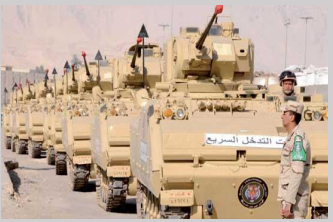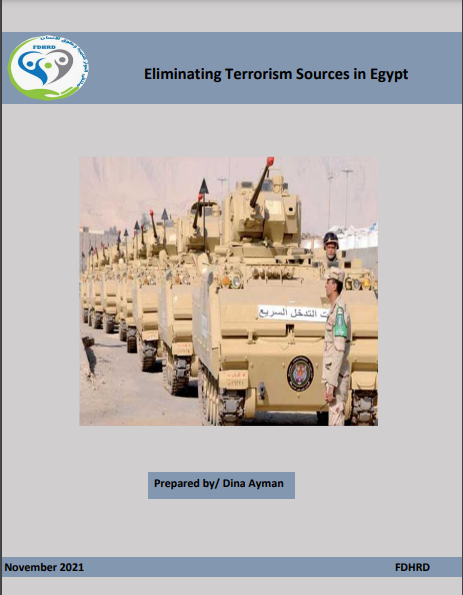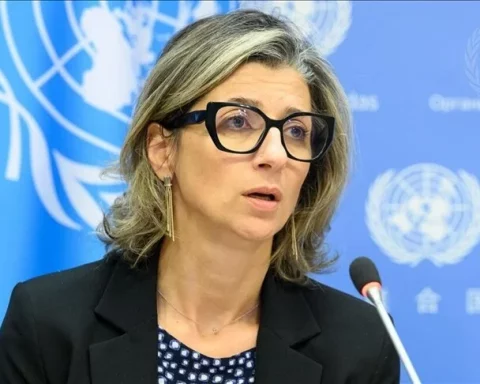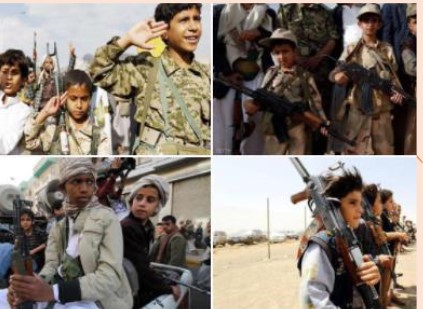Press Release
………………………………………………………………………………………..
Today, Monday, November 15, 2021, the Counter-Terrorism Watch at the Forum for Development and Human Rights Dialogue (FDHRD) issued a report entitled: (Eliminating Terrorism Sources in Egypt).
The report stated that the Egyptian state is making many efforts to combat and reduce terrorism, as the Ministry of Defense represented by the Egyptian army forces and the Ministry of Interior represented by the police forces are cooperating. Since the June 30, 2013 revolution, Egypt has continued to implement a comprehensive plan to deal with the various dimensions of the phenomenon of terrorism with the aim of Elimination of the so-called “Islamist” groups, foremost of which is the terrorist “Brotherhood” group, which uses religion as a cover to achieve its political goals, which is to impose an infidel model that deviates from true religion and its tolerant principles.
The report covered several topics, the most important of which are:
First: Egypt’s counter-terrorism approach
The report emphasized that Egypt called on the international community to increase efforts in combating terrorism, as combating terrorism is not limited to the security aspect and the security confrontation only, but also includes the economic, social, cultural, educational and development dimensions, and to give the intellectual and ideological dimension the necessary priority as the main motivator for the commission of terrorist acts, emphasizing that terrorism is not linked to any particular religion, culture or geographic region. The Egyptian approach to combating terrorism stems from the need to preserve the components of the national state and its institutions, respect the principle of “the primary responsibility of the state” and the centrality of the role of its national law enforcement institutions in the context of efforts to combat terrorism and extremism, and the need to respect what is related to the principle of state sovereignty in this regard. The role that civil society can play is a complementary role that supports the efforts of the state and under its official umbrella, and Egypt believes that this approach has several requirements necessary to achieve the desired goals.
1- National counter-terrorism efforts
The report stated that Egypt is working to combat terrorism in various legislative and security ways, as combating terrorism is a constitutional obligation. Article 237 of the new Egyptian constitution states that “the state is obligated to confront terrorism in all its forms, and track its sources of financing. The law regulates provisions and procedures for combating terrorism and fair compensation for Serious damage from it and because of it.”
The Egyptian state considers that the fight against terrorism is not limited to being an obligation of the state to protect its national security only, but also aims to protect one of the basic principles of human rights, which is the right to life. Proceeding from the constitutional obligation to combat terrorism, the legislator has drawn up an integrated group of national legislation that is consistent with Egypt’s obligations under Security Council resolutions and relevant regional and international agreements on combating terrorism to which it has joined, as well as the UN Global Strategy to Combat Terrorism in a manner that achieves an effective and comprehensive fight against the phenomenon of terrorism. in all its dimensions. The legislation also aimed to strengthen the means to confront the new methods in the field of terrorist financing.
2- Amendments to the Anti-Terrorism Law 2020
The report stressed that terrorism in all its forms and forms is a threat facing countries in recent years with activities aimed at destroying human rights, basic freedoms and democracy, threatening the territorial integrity, security and stability of countries, especially as it is managed at regional and international organizational levels by groups outside the laws of religion and morals, which called for the necessity of Confronting it, combating it and rooting it out by amending the Anti-Terrorism Law.
The House of Representatives approved a draft law submitted by the government regarding the amendment of some provisions of the Anti-Terrorism Law promulgated by Law No. 94 of 2015. It was approved by a two-thirds majority of the members of the House of Representatives, as it is one of the laws complementing the constitution. The draft law aims to amend Article (36) by prohibiting filming, recording, broadcasting, or displaying any facts of trial sessions in terrorist crimes without permission from the head of the competent court, and a fine of no less than one hundred thousand pounds and not more than three hundred thousand pounds shall be imposed on anyone who violates this danger. confiscation of seizures.
3- Emergency Law
Jurists define a state of emergency as being subject to a law regulating it, an exceptional system specified in time and place announced by the government, to confront emergency and extraordinary circumstances that threaten the country or part of it, by urgent measures and unusual methods; Under specific conditions and until the threat is removed. In Egypt, the emergency law authorizes the armed forces and the police to take what is necessary to confront the dangers of terrorism, maintain security throughout the country, protect public and private property, and save the lives of citizens. Last April, the state of emergency was renewed for the last time, before Egyptian President Abdel Fattah al-Sisi’s decision on October 25 ended this turbulent chapter in the country’s history. In light of what he has repeatedly declared, “Egypt is building a new republic.”
4- Amendment to the Camp David Agreement
The amendment of the Camp David Agreement between Egypt and Israel came to increase the spread of Egyptian forces on the borders between Egypt and Israel, to increase Egypt’s strength in its war against terrorism and to secure the Egyptian borders. The Egyptian military spokesman said: “The joint military committee, based on the coordination meeting with the Israeli side, succeeded in amending the security agreement by increasing the number of border guards and their capabilities in the border area in Rafah.”
Second: Egypt and the fight against terrorism from 2011 until the overall operation Sinai 2018
The emergency law and the application of the state of emergency did not prevent the occurrence of heinous terrorist incidents, especially in North Sinai, due to the state of chaos that has occurred in the country since 2011 due to the instability of the political situation and the spread of rumors and the arrival of the terrorist Brotherhood to power in Egypt and its failure to achieve stability within the Egyptian society, which led to Terrorist groups exploit this chaos and benefit from it by carrying out many terrorist operations, especially in North Sinai, Rafah and Al-Arish. During that period, the Egyptian army played an important role in bringing the country out of that crisis and achieving some stability.
On the ninth of February 2018, the General Command of the Armed Forces issued the first statement regarding the comprehensive military operation Sinai 2018, in order to confront terrorist and criminal elements in North and Central Sinai and in other areas in the Egyptian Delta and the desert back west of the Nile Valley, within the framework of the assignment issued by the President of the Republic to the General Command of the Armed Forces And the Ministry of the Interior, to comprehensively confront terrorism and other criminal operations in close cooperation with the rest of the state institutions
The comprehensive operation (Sinai 2018) consists of all the main weapons and branches operating in the armed forces with the Egyptian police, which made this operation include different dimensions in addition to the process of direct confrontation with terrorist elements and organizations, where the border guards and the Egyptian navy were able to tighten control over the borders Land and sea, whether related to the scope of the operation in the east of the country or on its western and southern borders, which led to the closure of the pathways for the transfer of funds, weapons, equipment and personnel for terrorist groups in North Sinai.
The report concluded that the Egyptian state worked on two parallel fronts, combating terrorism and drying up its sources in Egypt and North Sinai in particular, and starting to push the wheel of comprehensive development in this city in order to confirm the state’s ability to control and develop.








